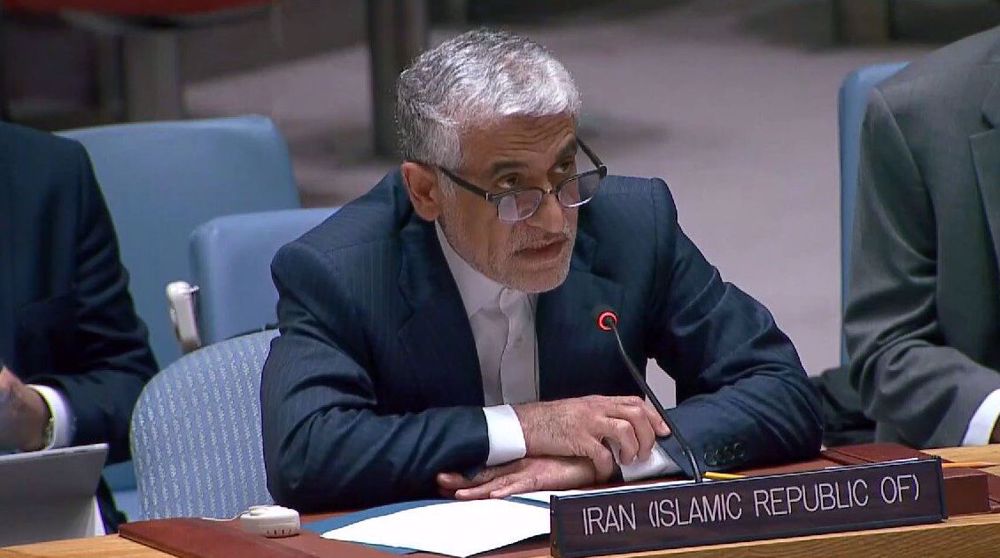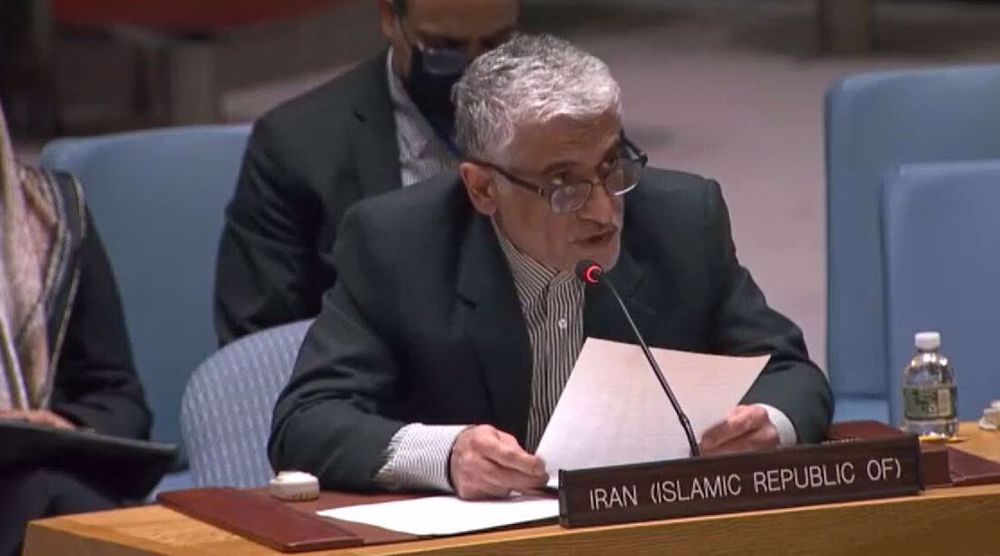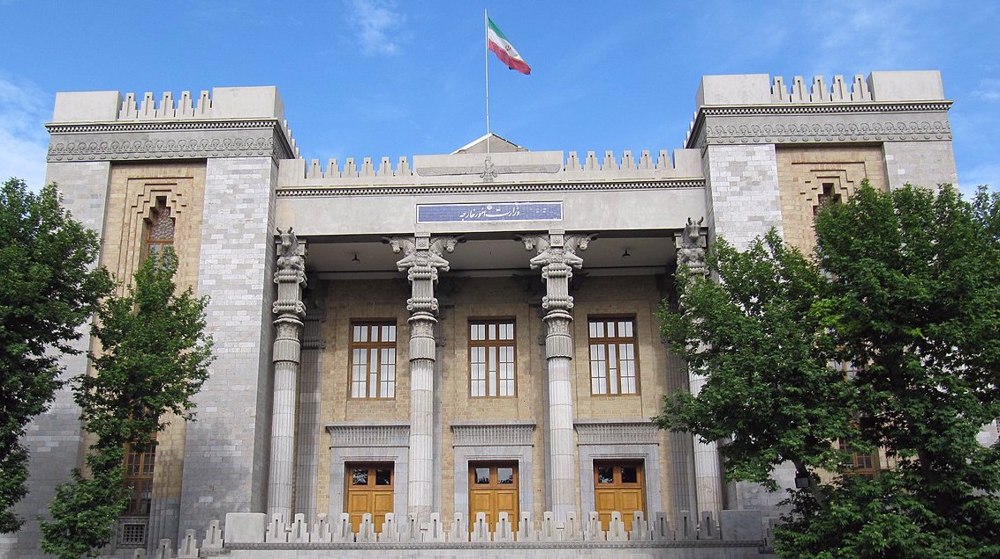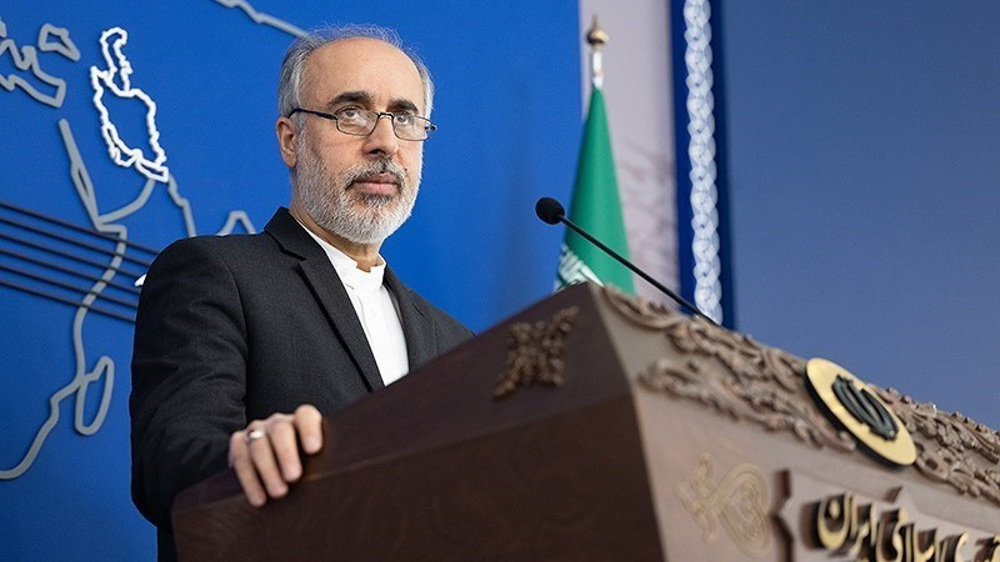Iran's UN ambassador: US unilateral actions violate UN Charter, threaten multilateralism
Iran's permanent ambassador to the United Nations says unilateral measures taken by the United States are against the UN Charter while threatening multilateralism in the world.
Amir Saeed Iravani made the remarks in a Monday address delivered during a UN Security Council debate on multilateralism.
"Multilateralism has been recognized as a well-established approach to addressing global challenges and effective multilateralism ... is essential for ensuring international peace and security," he said.
The official, however, warned that the integrity and effectiveness of multilateralism are undermined by the abuse of the UN system and selective application of international law, which pose a serious threat to international cooperation, peace, and security.
"Within this context, the United States’ unilateral withdrawal from the JCPOA, re-imposition of illegal unilateral sanctions on Iran, its coercion of other countries to engage in these illegal actions, and defiance of the International Court of Justice's order are striking examples of how such harmful unilateral acts violate the UN Charter, undermine the UN system and threaten multilateralism," Iran's ambassador said.
He was referring to Washington's unilateral and illegal withdrawal in 2018 from a multilateral deal with Iran, officially called the Joint Comprehensive Plan of Action (JCPOA), whose other members included the permanent members of the UN Security Council plus Germany. After leaving the deal, the administration of former US President Donald Trump reinstated all anti-Iran sanctions that the accord had lifted and introduced its signature "maximum pressure" policy against Tehran.
The administration of Trump's successor Joe Biden had alleged a willingness to compensate for Trump’s mistake by rejoining the deal, but it has retained the sanctions as leverage and even imposed a slew of its own coercive economic measures on the Islamic Republic.
"Unilateral coercive measures (UCMs), including their extraterritorial application, represent a concerning example of harmful unilateral acts that run counter to the fundamental principles of international law, the UN Charter, and basic human rights," Iravani said, adding, "These illegal measures have far-reaching humanitarian consequences and can undermine diplomatic efforts aimed at resolving disputes and promoting cooperation."
Iravani also referred a March 30 verdict by the International Court of Justice (ICJ), which ruled that the United States had violated the international law by allowing American courts to confiscate nearly two billion dollars in assets from Iranian companies, and ordered Washington to pay compensation.
"The ICJ's ruling is final and binding, requiring the US to comply with this decision," the Iranian diplomat noted.
Iravani said, "Collaboration should be the cornerstone of multilateralism, rather than confrontation," because "collaborative approaches foster trust, build consensus, and promote sustainable solutions to global challenges."
He concluded by saying, "Through collaborative problem-solving and engagement with all parties, multilateralism can effectively address the challenges facing our world today. In this context, diplomacy, dialogue, and negotiation should be the preferred means for resolving disputes among member states."
Hamas thanks Iran, Resistance Front following achievement of ceasefire in Gaza
'Capitulation': Israeli officials and media concede Gaza defeat as truce unfolds
'Gaza has won': Social media users react to ceasefire with mix of relief, joy
Iran seeks South Korea’s assistance for AI, fiber-optic projects
VIDEO | Iran's 'Eqtedar' (Power) maneuver
Israel hits HTS military target in Syria for 1st time since fall of Assad
VIDEO | Press TV's news headlines
Israel has slaughtered 13,000 students in Gaza, West Bank















 This makes it easy to access the Press TV website
This makes it easy to access the Press TV website